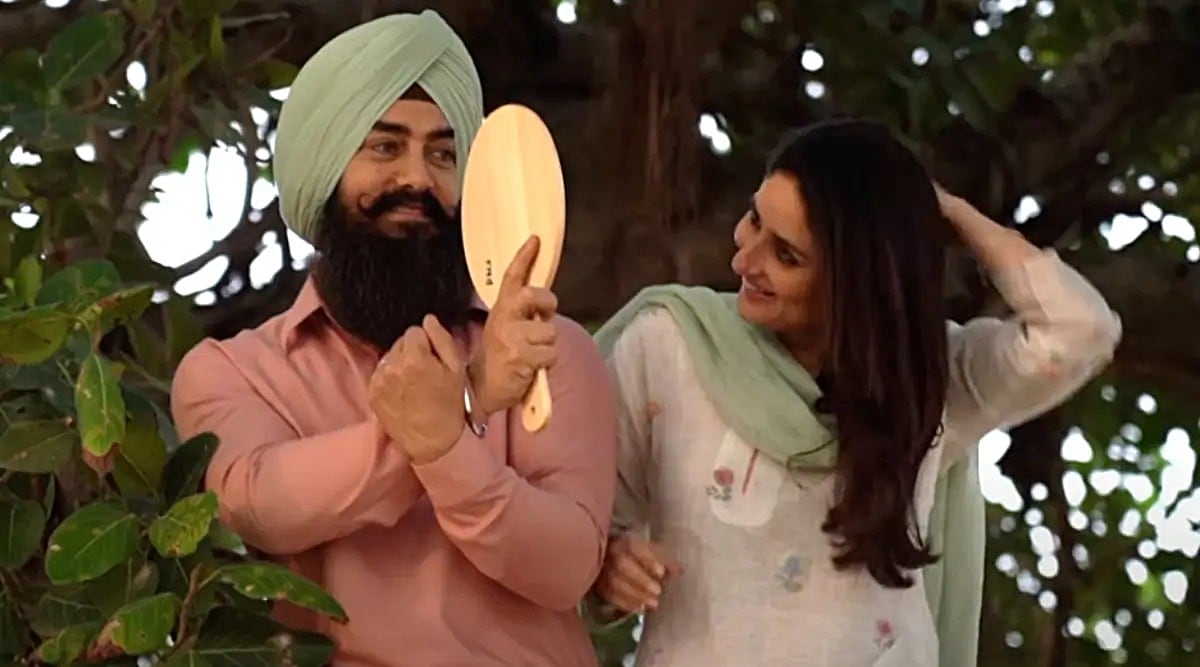 Laal Singh Chaddha hit the big screen on August 11.
Laal Singh Chaddha hit the big screen on August 11. The higher the stakes, the deeper the silence. For long, this has been accepted as the rationale behind why Hindi film biggies don’t speak up even in the face of the most virulent attacks against the industry. Calls to boycott movies — usually on flimsy grounds – ahead of their release, the trolling of celebrities for something as frivolous as attire or weight, and being offended by insignificant matters because “sentiments are hurt” have become a regular affair. Though the film industry has repeatedly been described as India’s “soft power” by our leaders, there is no denying that it has also become a soft target.
In light of this, Arjun Kapoor’s recent statement during an interview with Bollywood Hungama, that the industry “made a mistake by being silent” about the negative campaigns is a refreshing departure from the industry’s tendency to tiptoe around controversies, instead of confronting them. Kapoor said, “We made a mistake by thinking that our work will speak for ourselves…I guess we tolerated it a lot and now people have made this a habit. We need to come together and do something about it because what people write about us or the hashtags that trend, are far away from reality.” Filmmaker Anurag Kashyap too recently took a dig at the prevailing boycott trend. Known to speak his mind, Kashyap told Indianexpress.com: “These are strange times, where everything is to be boycotted… This country now has a boycott culture. If you are not being boycotted, then you don’t matter.”
The industry’s bigwigs are surely aware that the only way to fight it is to be united. But very few spell this out, unlike Kashyap or Kapoor. This fear of speaking up or sticking together is what filmmaker Hansal Mehta, in an earlier conversation with The Indian Express had described as “an act of self-preservation”. But this policy of clamming up has clearly failed. Even when a much-loved star like Aamir Khan tried to overturn the call to boycott his new movie Laal Singh Chaddha by proclaiming his love for India and stating that he “I want to assure everyone that it’s not the case (that he doesn’t love his country), so please don’t boycott my films”, it hasn’t managed to stop the negative online campaign against the film. Ditto, in the case of Akshay Kumar’s Raksha Bandhan. Kumar too pleaded during a promotional event that the audience shouldn’t boycott the film as a film’s success helps the country’s economy.
Hardly anyone other than those associated with Laal Singh Chaddha has addressed the boycott call directly. However, some of Khan’s industry colleagues and friends such as Hrithik Roshan praised the film and urged the audience to watch it. Soon after Roshan’s tweet, there was a call to boycott his upcoming action thriller Vikram Vedha. This explains why celebrities hesitate to take a stand.
Subscriber Only Stories
The reasons behind these boycotts and similar attacks range from the petty and whimsical to the vengeful. While Khan faced heat over his 2015 statement about feeling “unsafe” in India, Raksha Bandhan faced online ire when a four-year-old tweet by the film’s writer Kanika Dhillon was dug up and declared to be “Hinduphobic”. In the past, several movies such as My Name is Khan and Padmaavat managed to put their pre-release controversies behind them and have an impressive run at theatres. Many films such as the Abhishek Chaubey-directed Udta Punjab and Alankrita Shrivastav’s Lipstick Under My Burkha — both released in 2016 — have fought against censorship. Their cases went to the Bombay High Court, with both getting favourable verdicts.
However, in an increasingly hostile environment, few filmmakers today are willing to put up this kind of fight. This probably has to do with the vilification of the industry over the last few years, which reached its peak following actor Sushant Singh Rajput’s demise on June 14, 2020. Several prominent film personalities were severely criticised and the industry faced a prolonged witch-hunt. Nearly four months later, four industry associations and 34 production houses filed a civil suit before Delhi High Court to direct two news channels and social media platforms to refrain from making or publishing “irresponsible, derogatory and defamatory remarks” against the Hindi film industry. Such retaliations are few and far between.
The internet has given the power to anyone who has woken up on the wrong side of the bed to vent their frustration on social media or start a hashtag campaign. It has emboldened them to influence public perception and push their agenda. A large section of the public remains, or chooses to be, oblivious to such manipulations. Amongst the multitude of social media users, it is tough to separate the bots and trolls from the ordinary viewer. But is it going to help if Bollywood does not react, dispel conspiracy theories and make it clear that enough is enough? It’s already at the mercy of cyber bullies and those out to gain some political mileage — the industry must regroup, rethink and come up with a plan to counter such attacks.
alaka.sahani@expressindia.com